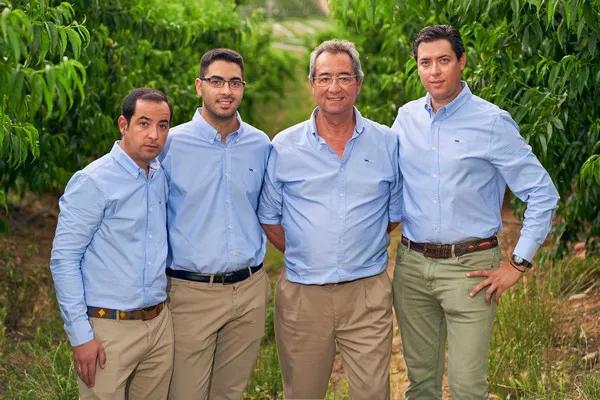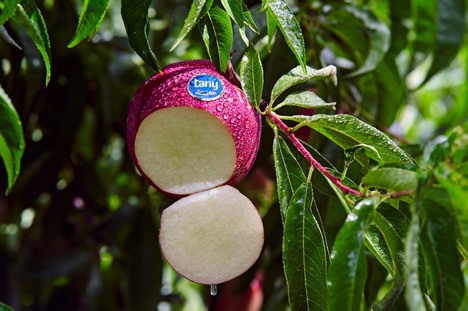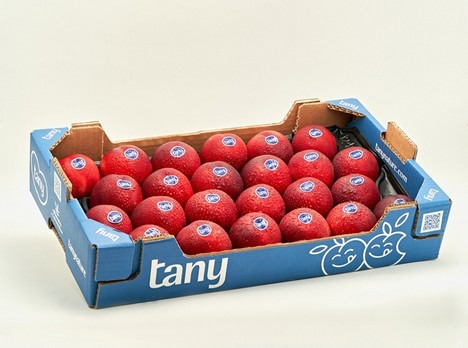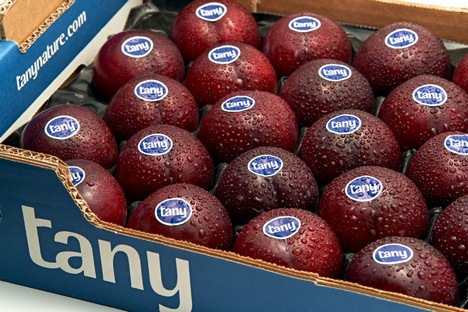The 2023 stone fruit campaign has already started in the earliest areas of Spain. Although last year there was a reduction of more than 30% in the Spanish stone fruit production, this year the volumes and quality are recovering, despite the fact that the harvest will still remain somewhat below the productive potential due to the impact of frosts in the early areas of Murcia and Badajoz, as well as the abandonment of the crop by small growers, since there is an ongoing restructuring of the sector.
 © Tany Nature
© Tany Nature
"Until two years ago, the Spanish stone fruit sector was permanently affected by price crises, but we have already been seeing signs of improvement," says José María Naranjo, Sales & Market Development Manager at Tany Nature, based in Zurbarán, Badajoz. "Although we had already been seeing gradual changes in the structure of the sector, this trend has been boosted in the years following the pandemic, given the excessive rise in production costs or the shortage of labor, among other factors."
In fact, many producers are still uprooting and changing their activity, or have replaced stone fruit for other crops, such as almonds, pistachios, olives or cereals, among others, leading to an atomization of the sector. "Moreover, there is a boom in the purchase of fruit producing companies by large investment funds, which are looking closely at the origins. This is something that had already been happening with other crops. The production is increasingly falling into the hands of specialist companies. There are fewer and larger players, and the supply is becoming more concentrated. It is no longer as diverse as it used to be," says José María Naranjo.

"For the 2023 campaign, this paradigm shift is resulting in companies that are increasingly able to offer a constant 'multi-product' supply from the beginning to the end of the campaign, as is our case, with plantations distributed in different producing areas and able to guarantee an excellent service that caters to all markets and segments. This year, we are once again obtaining an exceptional quality production, both visually and organoleptically. This, together with the service we provide to our customers, is allowing us to optimize the supply chain and offer a product tailored to the needs of each market," says Naranjo.
"However, the supply of unorganized growers delivering to the spot markets is falling due to pressure from their financial institutions to switch to other crops. The companies that remain in the sector are innovating constantly and we get fruit that is increasingly better adapted to the needs of the markets from the beginning to the end of the season."

Tany Nature markets its fruit in 58 different countries and continues to diversify its product portfolio. When the season is in full swing, the Extremadura-based company handles around 920,000 kilos per day in its fields and warehouses in an efficient and flexible manner.
Early production decline in Badajoz and good quality expected
This year's apricot harvest is expected to be reduced in the extra-early areas of Murcia due to the impact of frost. The same applies to the peaches, nectarines and apricots from the early areas of Badajoz, specifically to the production harvested in May, which, according to AFRUEX, the Association of Fruit Growers of Extremadura, could be reduced by 30 to 40%.

"This year, the weather has been suitable for the production. The flowering was delayed due to the persistent cold between mid-January and early March, but the situation improved with the warm temperatures of late winter and spring," says José María Naranjo. "Therefore, we hope that the fruit will arrive at the expected dates in all producing areas, and that the supply will be more consistent, with fewer production peaks, so that consumers can have access to good quality fruit throughout the campaign. At the moment, the quality of the fruit is great in terms of both sugar levels and taste, as well as in terms of size and color, and this will help encourage consumption."
"It is worth recalling that despite the stigmatization of the fresh fruit and vegetable sector because of the price rises, we have recorded a fairly significant increase in production costs, ranging between 43 and 46% in the last 2 years. Therefore, selling prices have to increase for us to be able to cover those costs," says José María Naranjo.
 For more information:
For more information:
José María Naranjo
Tany Nature
Camino General. 1. Zurbarán. Badajoz. Spain
T:+34 924 856 096
M:+34627960234
[email protected]
www.tanynature.com










